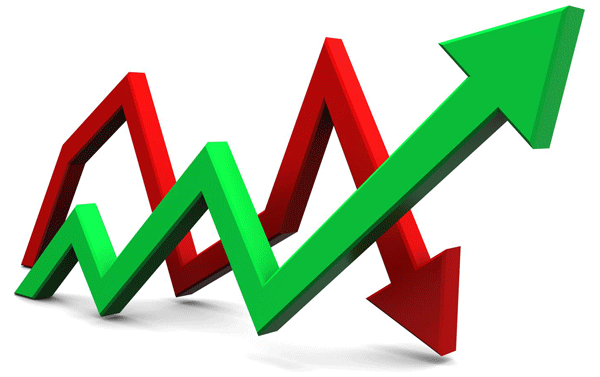|
Should I buy now or wait for a dip?
As investors we are constantly told you make your money when you buy not when you sell. If this is the case should you be investing in a red-hot market like what we are currently experiencing? This is a question that can be asked in all markets, and for all asset classes. Stocks, real estate, bitcoin, they are all the same. Let’s look at stocks. If you had purchased any index fund in say 2015, after the market had already enjoyed many, many years of amazing growth, would you have paid too much? Well fast forward to 2021 and it would look like you were quite the savvy bargain hunter. But if you had purchased the same index in January of 2020 and then needed to sell in April, you would have looked like a horrible investor….or were you? Almost all investment success comes down to time. The longer you wait, the more successful you will be. Using stocks as an example regardless of when you buy, even at the peaks before whatever crash we talk about, your purchase would happily be in the black when enough time passes. This brings us to the idea of what type of an investor you are and how that impacts the markets you buy in. Let’s say there are two main types of people; investors (and speculators) or traders. Traders are constantly moving in and out of the market with the goal of making smaller (or sometimes very big) gains on each investment. If this is their occupation, they derive the bulk of their income from the profit on the flip. They buy something for $10 and sell it for $20. These investments often have very narrow time windows of days to months depending on the strategy. It could be simple flip to another investor or a buy, renovate and sell to an end consumer or investor. Traders are very sensitive to market fluctuations. Their fortunes can be wiped out or balloon with major market moves. For traders the goal is always to buy the asset as low as possible to reduce risk and maximize upside potential. For a trader a hot market like what we are experiencing in real estate squeezes margin because competition drives up prices. This does not mean you can’t successfully trade in and out of deals, but it becomes more work with less profit. An investor on the other hand is much less sensitive to market ups and downs. In the current market the price of all homes will be higher, but when we expand our time horizon to 10 or 20 years, the purchase price has much less impact on our overall plan. When we factor in rental income and very conservative price appreciation, the purchase price has very little impact on total wealth accumulated over two decades. Now within those 20 years there is every chance you may experience a crash or two, but over time the recovery brings you back to where you were pre-crash. The typical investor buys at the high with “fear of missing out (FOMO)” and sells at the low with “fear of losing everything (FOLE)”. A successful investor buys for more reasons than just price as part of a solid overall wealth building plan. So for an investor, the best time to buy is whenever you are ready and able to buy. Who is to say Florida real estate will not be 20% higher this time next year. No one knows. Of course it could be 20% lower too. But as long as your fundamental investing thesis remains intact it doesn’t matter. If you still like the area, your tenant prospects remain solid, and you don’t have an urgent need for the funds you are using to invest, just hold tight and let your real estate work its magic. For a refresher on our wealth concepts checkout out this series from David. So there you have it. In a nut shell the best time to buy is when you are ready to buy and can hold tight for years to come to weather any storm. Or if you are a trader just remember, what goes up will eventually come down. Prepare for both sides of the mountain and you should be fine. Also a quick reminder if you are looking to sell your property, we are a full service shop and can look after that for you as well. We do more than just find you amazing homes to buy, we can help you sell them for top dollar too.
0 Comments
Leave a Reply. |
|
West Florida Invest / Atlas Realty Group
P.O. Box 1923 Largo, FL 33779 All enquiries: info@westfloridainvest.com Hours of operation: Monday to Friday 9:00am to 5:00 pm EST. Phone: 727-506-8177 Please allow 3 business days to book any in person visits. Privacy Policy | Terms and Conditions Copyright 2021 West Florida Invest
|
See Our New Listings FirstNever miss a single opportunity. Our homes sell extremely fast. The best way to ensure you get one is to be on our email list. Click below to join our list.
|
The information contained in this site is provided for informational purposes only, and should not be construed as legal advice on any subject matter. You should not act or refrain from acting on the basis of any content included in this site without seeking legal or other professional advice. West Florida Invest its directors its employees, or agents do not provide legal or tax services. Buyers are responsible for reviewing tax and legal issues with their own counsel or independent experts. It is the ultimate responsibility of the buyer to perform its own due diligence and independently determine what is best for its business, what steps to take to accomplish its goals, when to act, and the repercussions of such actions. West Florida Invest its directors, employees, or agents do not provide legal or tax services. Buyers are responsible for reviewing tax and legal issues with their own counsel or independent experts. It is the ultimate responsibility of the client to perform its own due diligence and independently determine what is best for its business, what steps to take to accomplish its goals, when to act, and the repercussions of such actions.
West Florida Invest its directors its employees, or agents disclaims any liability connected to the use of this communication. West Florida Invest its directors its employees, or agents associates disclaims any responsibility for the content or impact of any third-party content or resources referenced in this communication. West Florida Invest its directors its employees, or agents makes no representations or warranties, express, implied, or statutory, as to the services, advice, or information provided by West Florida Invest its directors its employees, or agents, or to the ultimate results of any such services or advice, including without limitation any implied warranty of reliability, accuracy, suitability, usefulness, merchantability, fitness for a particular purpose, non-infringement, or those arising from the course of performance, dealing, usage, or trade. West Florida Invest its directors its employees, or agents shall not be liable to the client for error of judgment.
Special Note Regarding Forward-Looking Financial Projections:
Any Forward-Looking Financial Projections contained herein are subject to a number of risks and uncertainties, and actual results may differ materially. You are cautioned not to place undue reliance on the Financial Projections, which speak only as of the date hereof. These Forward-Looking Financial Projections such as those related to projected revenue and profitability levels are only predictions. No assurances can be given that the future results indicated, whether expressed or implied, will be achieved. While sometimes presented with numerical specificity, these Forward-Looking Financial Projections are based upon a variety of assumptions which may not be realized, and which are variable.
Because of the number and range of the assumptions underlying the Forward-Looking Financial Projections, many of which are subject to significant uncertainties and contingencies that are beyond the reasonable control of West Florida Invest its directors its employees, or agents, many of the assumptions inevitably will not materialize and unanticipated events and circumstances may occur subsequent to the date of this Financial Model. Consequently, West Florida Invest its directors its employees, or agents take no responsibility for any of the Forward-Looking Financial Projections or any other information contained within this document, and none of the information contained herein should be regarded as a representation by West Florida Invest its directors its employees, or agents that these estimates and projections will be realized.
West Florida Invest its directors its employees, or agents disclaims any liability connected to the use of this communication. West Florida Invest its directors its employees, or agents associates disclaims any responsibility for the content or impact of any third-party content or resources referenced in this communication. West Florida Invest its directors its employees, or agents makes no representations or warranties, express, implied, or statutory, as to the services, advice, or information provided by West Florida Invest its directors its employees, or agents, or to the ultimate results of any such services or advice, including without limitation any implied warranty of reliability, accuracy, suitability, usefulness, merchantability, fitness for a particular purpose, non-infringement, or those arising from the course of performance, dealing, usage, or trade. West Florida Invest its directors its employees, or agents shall not be liable to the client for error of judgment.
Special Note Regarding Forward-Looking Financial Projections:
Any Forward-Looking Financial Projections contained herein are subject to a number of risks and uncertainties, and actual results may differ materially. You are cautioned not to place undue reliance on the Financial Projections, which speak only as of the date hereof. These Forward-Looking Financial Projections such as those related to projected revenue and profitability levels are only predictions. No assurances can be given that the future results indicated, whether expressed or implied, will be achieved. While sometimes presented with numerical specificity, these Forward-Looking Financial Projections are based upon a variety of assumptions which may not be realized, and which are variable.
Because of the number and range of the assumptions underlying the Forward-Looking Financial Projections, many of which are subject to significant uncertainties and contingencies that are beyond the reasonable control of West Florida Invest its directors its employees, or agents, many of the assumptions inevitably will not materialize and unanticipated events and circumstances may occur subsequent to the date of this Financial Model. Consequently, West Florida Invest its directors its employees, or agents take no responsibility for any of the Forward-Looking Financial Projections or any other information contained within this document, and none of the information contained herein should be regarded as a representation by West Florida Invest its directors its employees, or agents that these estimates and projections will be realized.


 RSS Feed
RSS Feed

